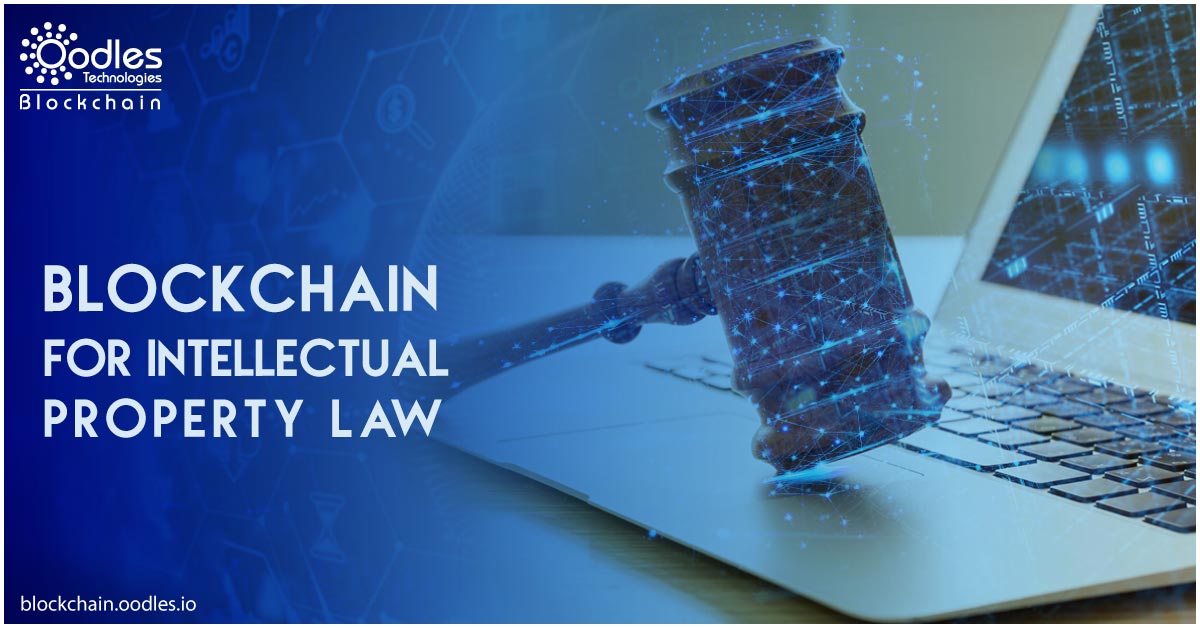-
In this blog, we are discussing the gravitas of blockchain business solutions in intellectual property (IP) law and management. We will be talking about some pain points and the viability and time restrictions of implementing and adopting this technology.
Intellectual Property Rights
Law firms are increasingly looking to adapt to change and innovation within their business operations. Now, various clients want a technology that can positively impact intellectual property management.
In recent years, there has been an explosion in IP activity resulting in firms putting time into administrative, non-billable tasks to achieve client requirements.
Related Post | Intellectual Property Rights Management with Blockchain
The Challenges
As per a survey by CPA Global of around 400 IP professionals, IP law firms are facing the following key challenges:
- Gradual business growth
- Obscure customer service
- Profitability
These challenges require time to tackle but IP lawyers don't have time. Additionally, if they depend on manual development, these challenges may remain challenges for a prolonged period.
Check It Out | How Decentralized Science (DeSci) can Transform Modern Science
The Solution: Blockchain-based IP Ledger
Blockchain records transactions in a distributed ledger. The ledger stores the transactions conducted between two or more parties forever without a middleman's involvement to validate transactions.
Mainly created to bolster the development of cryptocurrency in 2008, blockchain now has wider implications for numerous prominent industries including IP.
Blockchain provides accuracy because the copy of a transaction resides on numerous nodes (computers) globally. Interestingly, each new block in the blockchain contains a copy of the previously added block, making information visible to everyone. Moreover, the whole system is made secure using military-grade cryptography.
Suggested Read | Blockchain Applications in the Automotive Industry | Advancing Innovation
The Benefits of Blockchain in Intellectual Property Law and Management
Businesses can apply blockchain in intellectual property law and management in various scenarios. It can reduce time consumption on administrative tasks and help maintain IP record accuracy.
Let's take idea generation for instance.
When given the task to protect an inventor's idea, law firms require to defend the client as the first person to create IP for that.
Blockchain-based solutions can eradicate ownership issues. They allow organizations and individuals to identify and validate their innovation and keep a safe record within a blockchain.
Blockchain-based applications can provide an accurate ownership record of IP assets. With such applications, the IP industry can improve on being more effective in interrogating, rather than using existing methods available. A blockchain-based application can effectively remove any complications surrounding who was the first to develop an idea.
Also, users can create licensing agreements digitally and record them safely via the blockchain itself.
Along with numerous advantages, blockchain gives users the ability to store an initial idea on it and then update it and form a geographical scope. Law firms who would be using the same blockchain can access the process of protection and update the blockchain respectively. Thus, significantly decreasing complexity and promoting more companies and individuals to protect their ideas.
Also, Check | The Emergence of Blockchain Applications in Manufacturing
Adoption of Blockchain in Intellectual Property
The widespread adoption of blockchain could bring transformative changes in the processes of IP firms. Though, the process of blockchain adoption is complex and will take time.
Early adoption of blockchain in intellectual property law would likely mean company-wide blockchains to allow inventors to collaborate more efficiently. Researchers around the world could collectively cooperate for a company, bolstering each other by appending others' work via a blockchain application.
Further, global IP firms could begin adopting the blockchain to expedite the 'Idea Protection' process and allow inventors to assert their possession of IP assets.
If you need to develop a blockchain-based platform to manage IP rights, then our blockchain experts can assist you. Contact us today to get started.

Our Offices
INDIA
Emaar Digital Greens, Sector 61,
Gurugram, Haryana
122011.
Welldone Tech Park,
Sector 48, Sohna road,
Gurugram, Haryana
122018.














